5 Things Candidates Want to See in Your Job Spec
In a competitive job market, attracting top talent starts with a well-crafted job spec. Candidates are more selective than ever, and if your job spec doesn’t catch their attention or provide the right information, they’ll move on quickly. So, what exactly are job seekers looking for when they browse vacancies? Here are five things candidates want to see in your job spec to increase engagement and attract the right talent.
- Clear Salary Information
One of the biggest frustrations for job seekers is vague or missing salary details. Candidates want to know upfront whether a role aligns with their salary expectations, and many will skip over listings that don’t include this information.
Including a salary range demonstrates transparency and helps manage expectations, ensuring you attract candidates who are comfortable with the compensation offered. If flexibility exists, stating “competitive salary” alongside additional benefits can still be effective—but clarity is always best.
- A Concise and Engaging Job Spec
A lengthy, jargon-filled job spec can deter great candidates. Instead, focus on crafting a clear, concise description that outlines the most important aspects of the role. Candidates want to know:
- Key responsibilities – What will they be doing day-to-day?
- Essential requirements – What qualifications, skills, or experience are needed?
- Opportunities for growth – Is there room for career progression?
The more direct and engaging your job spec, the more likely it is to capture the attention of the right candidates.
- Company Culture and Values
Candidates don’t just want a job—they want the right workplace fit. Many job seekers actively look for insights into company culture, values, and work environment before applying.
Consider including a brief section about your company’s mission, values, and what makes your workplace unique. Highlight aspects such as diversity and inclusion, employee wellbeing initiatives, or team culture. If applicable, linking to an employee testimonial or company video can be a great way to bring your employer brand to life.
- Flexible Working Options
Work-life balance has become a top priority for candidates, and flexibility is now a major deciding factor when applying for jobs. If your company offers remote working, hybrid options, or flexible hours, make sure to highlight this in your job spec.
Even if the role requires on-site work, mentioning policies such as flexible start and finish times or condensed workweeks can help attract a wider talent pool. Transparency about your approach to flexibility will set you apart from employers who don’t address this at all.
- A Simple and Streamlined Application Process
Candidates are often put off by long, complicated application processes. If applying for your role requires filling out excessive forms, uploading a CV and then manually entering the same information, you may lose top talent before they even apply.
Make it easy for candidates by:
- Keeping the application process short and straightforward
- Clearly outlining the next steps after applying
- Indicating an expected response timeframe
A seamless application experience shows that you respect candidates’ time and improves their perception of your company.
Final Thoughts
A well-structured job spec isn’t just about listing requirements—it’s about attracting the right talent by offering clarity, transparency, and an insight into what it’s like to work for your company. By including these five key elements, you can boost engagement, improve application rates, and find the best fit for your team.
Need help creating compelling job specs that attract top candidates? Get in touch with our expert recruitment team today!










